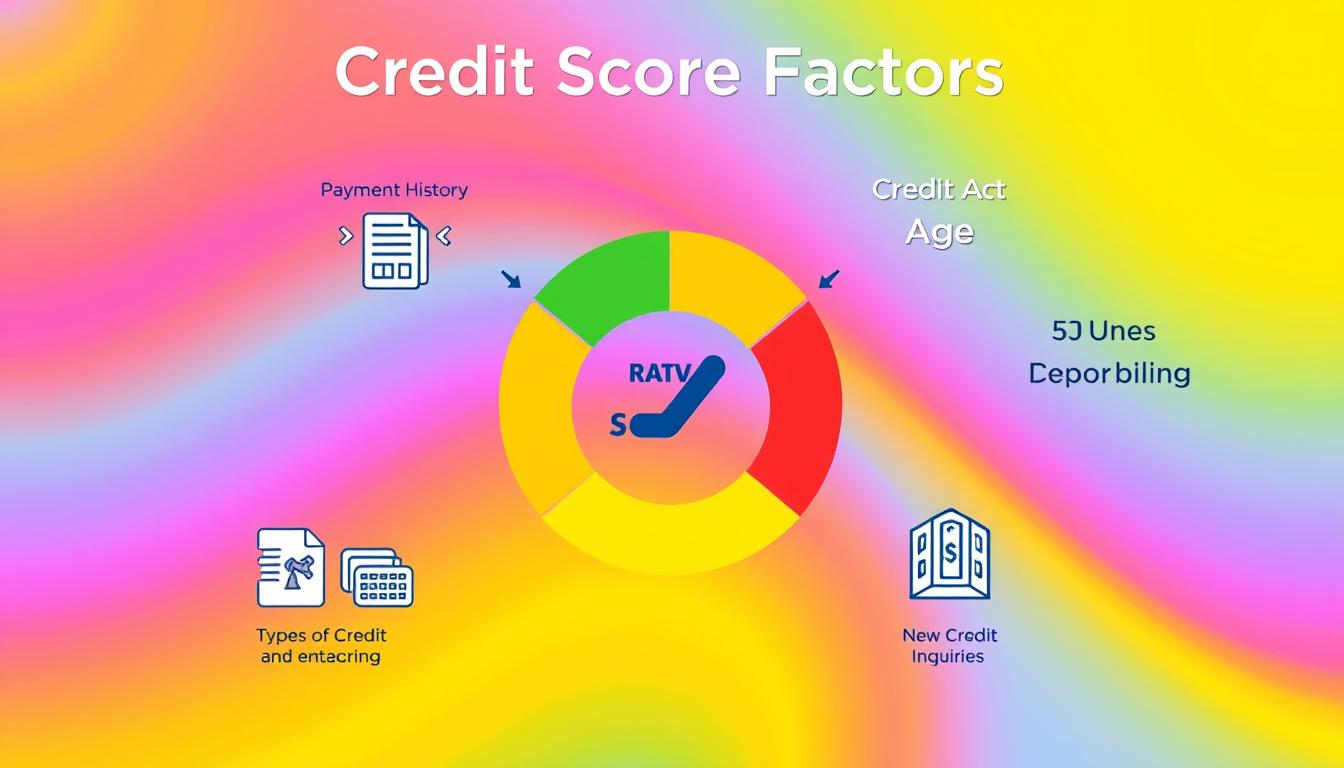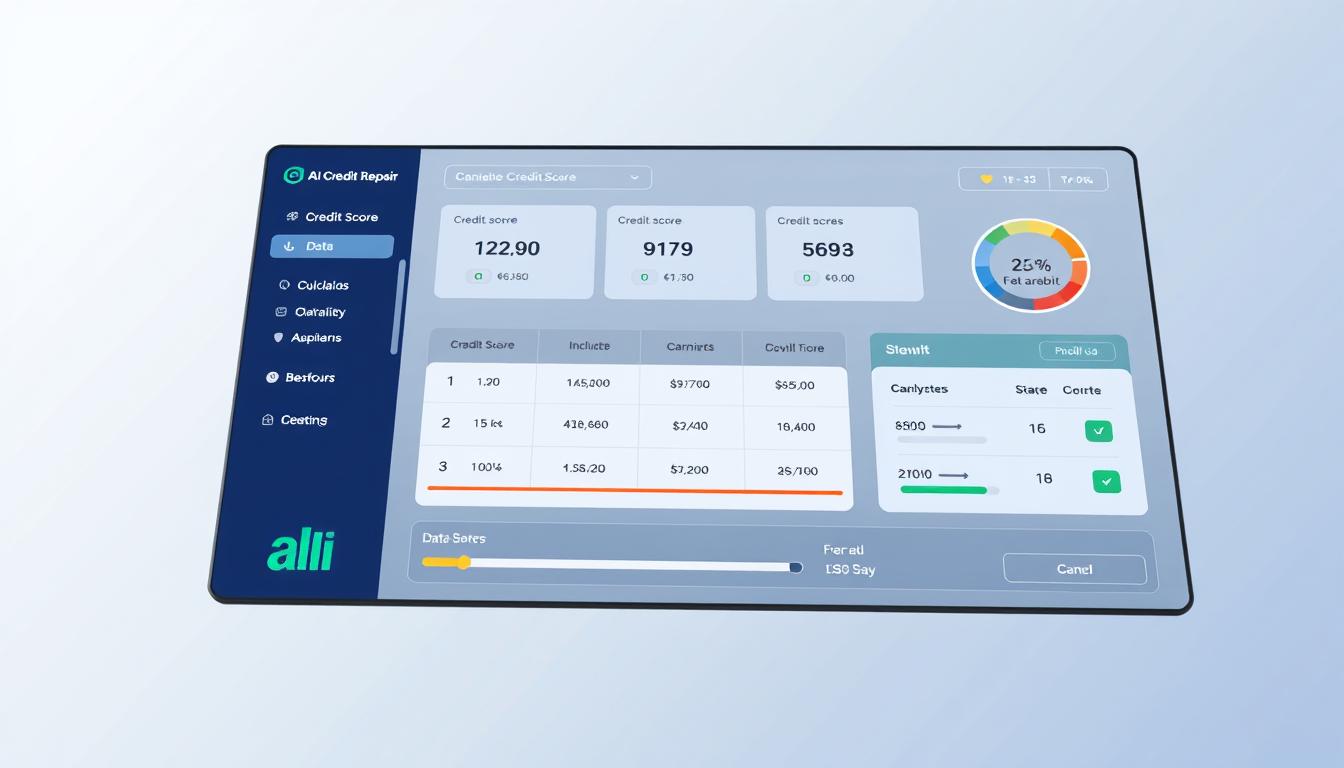A good credit score is crucial for financial stability. It affects loan approvals, apartment rentals, and credit card applications. Improving your credit score is vital for better financial opportunities.
A credit score increase calculator is a powerful tool for managing your credit. It estimates potential score improvements based on financial changes. This credit score boost calculator helps you understand factors affecting your score.
With these insights, you can create a personalized plan to improve your credit score. You’ll be able to make informed decisions about your financial actions.
Key Takeaways
- A credit score increase calculator estimates potential score improvements.
- Understanding credit score factors is key to developing an improvement strategy.
- A credit score improvement calculator provides insights for realistic goal-setting.
- Regular credit score monitoring helps maintain good financial habits.
- Higher credit scores open up new financial opportunities.
Understanding Credit Score Calculations
Your credit score reflects your creditworthiness. It’s a number based on several factors. Lenders use this score to assess the risk of lending to you.
Knowing what affects your credit score helps maintain a healthy profile. By understanding these factors, you can take steps to improve your score.
Factors That Influence Credit Score Changes
The main factors affecting your credit score include:
- Payment History – Your track record of making on-time payments is the most heavily weighted factor, accounting for about 35% of your credit score.
- Credit Utilization – This measures how much of your available credit you’re using, typically accounting for 30% of your score.
- Length of Credit History – The longer you’ve had credit accounts open, the better, as this makes up about 15% of your score.
- Credit Mix – Having a variety of credit types, such as credit cards, loans, and mortgages, can positively impact your score by about 10%.
- New Credit – Applying for and opening new credit accounts can temporarily lower your score by around 10%.
These factors that affect credit score help shape your credit score calculation formula. By focusing on them, you can boost your score over time.
| Factor | Impact on Credit Score |
|---|---|
| Payment History | 35% |
| Credit Utilization | 30% |
| Length of Credit History | 15% |
| Credit Mix | 10% |
| New Credit | 10% |

“Maintaining a healthy credit score requires understanding the key factors that influence it and taking proactive steps to manage those factors effectively.”
Using a Credit Score Increase Calculator
A credit score increase calculator can help you understand how your credit score might improve. These tools let you input your credit profile and simulate changes. This gives you insight into how actions could affect your score.
A credit score simulation tool helps plan your credit-building strategy. It shows you how different factors influence your score. This knowledge helps you make smart decisions about managing your credit.
- Input your current credit information, such as payment history, credit utilization, and credit mix.
- Experiment with different scenarios, like lowering your credit card balances or increasing your credit limit.
- The calculator will provide an estimated credit score increase based on the changes you’ve simulated.
A credit score increase calculator helps you see the impact of your credit management efforts. It allows you to set realistic goals for improving your score. You can also track your progress over time.
A credit score increase calculator is a valuable tool for anyone looking to improve their credit standing. It provides a glimpse into the future and empowers you to make informed decisions about your financial well-being.”

Using a credit score increase calculator helps you take charge of your credit. It can unlock opportunities for better rates and terms. This tool empowers you to improve your financial flexibility.
How Much Will My Credit Score Go Up Calculator
Step-by-Step Guide to Using the Calculator
Wondering about your potential credit score increase? The step by step credit score increase calculator can estimate your credit boost. This tool analyzes your financial situation and suggests improvements.
It helps you understand how to raise your score effectively. You can explore different scenarios to see their impact on your credit.
- Start by gathering your current credit information, including your credit history, payment history, and credit utilization ratio.
- Visit the credit score increase calculator and input your current credit details. The calculator will analyze your data and provide an estimate of how much your credit score could improve based on various scenarios.
- Explore different scenarios by adjusting factors like reducing your credit card balances, paying off outstanding debts, or increasing your credit limit. The calculator will show you the estimated impact on your credit score for each scenario.
- Review the results and identify the most effective steps you can take to boost your credit score. The calculator will provide a personalized roadmap to help you achieve your desired credit score.
- Implement the recommended strategies and monitor your credit score progress over time. Regularly using the step by step credit score increase calculator can help you stay on track and achieve your credit goals.
The credit score boost estimator offers insights into your credit profile. It helps you make informed decisions about improving your score.
Use this credit score improvement tool to create a plan for better financial health. Start today and watch your credit score grow.
Improving your credit score takes time and effort. Stay committed to your goals. With patience and dedication, you’ll see your score rise.
Strategies for Boosting Your Credit Score
A strong credit score is key to financial stability. It opens doors to better loan terms and lower interest rates. Here are proven strategies to boost your credit score and achieve financial success.
Pay your bills on time. This is the most important factor in determining your credit score. Make sure to pay all bills, including credit cards, in full each month.
Reduce your credit card balances. High credit utilization can hurt your score. Try to keep your balances below 30% of your total available credit.
This shows responsible credit management. It demonstrates that you’re not overly reliant on credit.
Dispute errors on your credit report. Review your reports regularly and address any mistakes. Inaccuracies can negatively impact your score.
Become an authorized user on someone’s account with good credit history. This can boost your score by leveraging their positive credit record.
These tips to improve credit score and credit score building techniques can help you increase your credit score. Take action now to unlock better financial opportunities.

Monitoring Your Credit Score Progress
Keeping tabs on your credit score is vital for financial health. It helps identify areas for improvement. Many tools and resources can help you track your score over time.
Tools and Resources for Tracking Credit Score
Credit monitoring services are great for tracking credit score changes. Credit Karma, Experian, and TransUnion offer regular updates on your score. These credit score monitoring apps also provide insights into factors affecting your score.
Several websites offer free credit score tracking. AnnualCreditReport.com provides free reports from major credit bureaus once a year. These include Equifax, Experian, and TransUnion.
- Credit Karma: A popular credit score monitoring app that provides free credit scores and reports from TransUnion and Equifax.
- Experian: Offers a free credit monitoring service, as well as premium options for more comprehensive credit score tracking.
- AnnualCreditReport.com: A government-mandated website that allows you to access your free credit reports from the three major credit bureaus annually.
Regular tracking credit score changes keeps you informed about your financial standing. It allows you to take steps to maintain or boost your credit health.

The Impact of a Higher Credit Score
A high credit score offers numerous benefits for your financial health. It grants access to better loan terms and lower interest rates. This leads to significant savings and more financial flexibility.
A strong credit score opens doors to exciting opportunities. You could secure a mortgage with a smaller down payment. You might qualify for credit cards with great rewards programs.
Lenders view those with excellent credit as reliable borrowers. They’re more likely to offer the best deals and most attractive financing options.
A higher credit score can directly impact your purchasing power. It allows you to negotiate better loan terms. You may obtain larger credit limits and qualify for exclusive financial products.
This advantage is crucial when making big purchases. The interest rate and loan terms can greatly affect the overall cost of a car or home.
A higher credit score can also boost your peace of mind. It may increase your confidence in managing finances. You’ll feel more secure about your financial future.
“A good credit score is not just a number – it’s the key to unlocking financial doors and achieving your goals.”
The benefits of a good credit score are far-reaching. They can positively impact your financial well-being for years to come. Understanding its importance is key to long-term success.
Common Credit Score Myths Debunked
Credit scores often come with misconceptions that can harm your financial health. Let’s explore and debunk some common credit score myths. Understanding these can help you make better financial decisions.
Closing unused credit cards doesn’t boost your credit score. It can actually lower your credit utilization ratio. Keep your credit card accounts open, even if you don’t use them often.
Checking your own credit report won’t hurt your score. It’s a “soft” inquiry and doesn’t affect your credit score. You can safely monitor your credit through various services.
- Myth: Closing unused credit cards can improve your credit score.
- Myth: Checking your own credit report will harm your credit score.
- Myth: Paying off your balance in full each month is unnecessary for a good credit score.
- Myth: Having a mix of credit types is required for a high credit score.
Paying off your balance in full each month is crucial for a good credit score. It helps maintain a low credit utilization ratio. This ratio compares your credit use to your total available credit.
A mix of credit types isn’t required for a high credit score. While it can be helpful, it’s not a must. Focus on keeping a low credit utilization ratio and making timely payments.
| Credit Score Myth | Reality |
|---|---|
| Closing unused credit cards improves your score | Closing cards can lower your credit utilization ratio, which is a key factor in your score |
| Checking your own credit report harms your score | Self-checks are considered “soft” inquiries and do not affect your score |
| Paying off balance in full is unnecessary | Maintaining a low credit utilization ratio is crucial for a good score |
| Diverse credit mix is required for high score | While beneficial, a diverse mix is not an absolute necessity |
Knowing these credit score myths can help you make smarter choices. You’ll be better equipped to manage your credit and improve your score. Remember, good credit habits are key to financial success.
Building and Maintaining Good Credit Habits
A strong credit profile is vital for financial stability and opportunities. Adopting responsible credit management practices helps build and maintain a good credit score. These habits can secure your financial future.
Tips for Responsible Credit Management
Here are key strategies to build good credit history and manage your credit effectively:
- Make timely payments: Pay all credit obligations on time. This includes credit cards, loans, and bills.
- Keep credit card balances low: Maintain balances well below your credit limits. High utilization rates can hurt your credit score.
- Diversify your credit mix: Use different types of credit. This shows you can manage various credit accounts well.
- Review your credit reports regularly: Check your reports for accuracy often. Dispute any errors to maintain a healthy credit profile.
- Limit credit applications: Avoid applying for too much new credit at once. Each application can temporarily lower your score.
Following these credit management best practices will help you build good credit history. Your credit score will improve over time with consistent effort.
These habits can lead to better financial opportunities. Embrace them and watch your credit profile improve.
“Responsible credit management is the key to unlocking a world of financial opportunities. Embrace these habits and watch your credit profile soar.”
Conclusion
A credit score increase calculator can help you reach your financial goals. It lets you examine factors that affect credit score changes. Use this tool to plan effective ways to boost your credit standing.
Maintaining a healthy credit score is about more than numbers. It’s about developing responsible financial habits. These habits will benefit you in the long run.
Stay watchful of your credit progress. Keep building a strong foundation of creditworthiness. Use tools and resources to track your credit score progress.
With this knowledge, you can navigate the credit world confidently. Make informed decisions that will positively impact your financial well-being.

